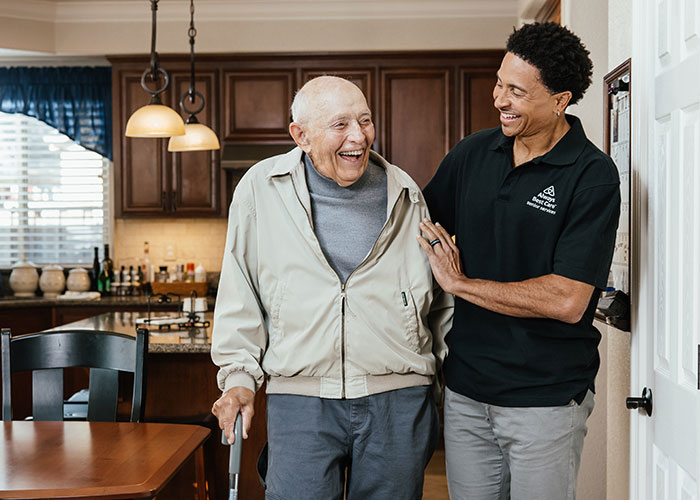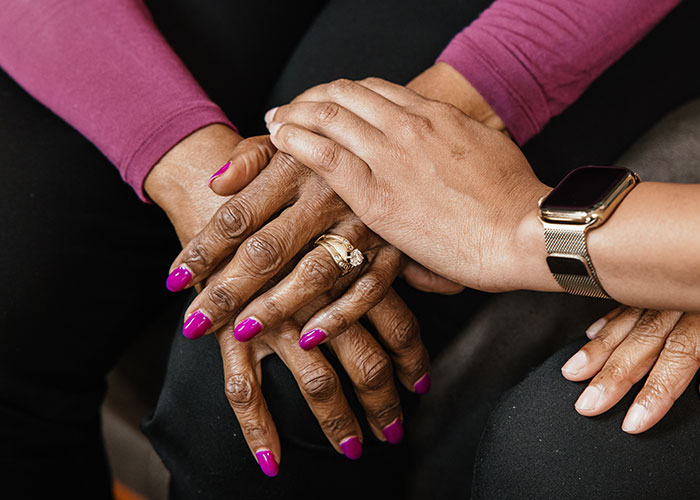Polio Vaccines [Who Should Get It, Debunking Myths & FAQs]
![Polio Vaccines [Who Should Get It, Debunking Myths & FAQs]](https://cdn.alwaysbestcare.com/wp-content/uploads/2025/09/polio-vaccine-for-seniors-hero-image.png)
Table of Contents
Polio Vaccines Explained: Key Takeaways
- Right now, the U.S. only uses the IPV vaccine
- Most U.S. adults are assumed to be protected against polio through routine childhood vaccinations
- If an adult hasn’t received polio shots, they should get the full three-dose series with the IPV vaccine
Polio was once a serious threat in the U.S., but thanks to vaccines, it was essentially wiped out, with no cases of wild poliovirus reported since 1979.
When a new case was reported in July 2022, (the first in over 30 years!,) it caught everyone’s attention.
For families and their elderly loved ones, this served as a wake-up call that diseases once thought to be “gone” can reappear, particularly when vaccination rates decline or travel-related exposure increases.
If you’re unsure whether your loved one needs the IPV vaccine, this guide will walk you through:
- When a senior might need the IPV vaccine
- Who should avoid getting the shot (and why)
- Common myths about the polio vaccine (and the facts behind them)
- How Always Best Care can support your loved one at home after vaccination
Polio Vaccines Explained
Since 2000, the United States has exclusively used the inactivated polio vaccine (IPV), administered as a shot in the arm or leg, depending on your age.
The inactivated polio vaccine safeguards against all three poliovirus types (P1, P2, and P3) and prevents paralysis from poliomyelitis.
Do Seniors Still Need Polio Vaccines?
Routine childhood vaccinations have already protected most adults in the U.S. against polio.
If your elderly loved one missed vaccination or did not finish the full series, completing a three-dose series of the inactivated polio vaccine (IPV) will provide them with full protection.
Your elderly loved one might need IPV if:
- They’ve never been vaccinated: If they didn’t get polio shots as a child, they’ll need a three-dose series to be fully protected.
- They didn’t complete the full series: If they started but never completed the vaccine series, it’s important to catch up.
Some adults might also need a booster if they’re at higher risk of being exposed to the virus, like:
- Lab workers who might handle poliovirus samples.
- Healthcare or aid workers helping in areas where polio could be a threat.
- Travelers visiting countries with ongoing polio transmission or recent outbreaks, like Afghanistan.
IPV Vaccines: Who Shouldn’t Get It
Most seniors can safely get the vaccine without any issues.
However, as with any medical treatment, there are a few exceptions. In some cases, such as with severe allergies, it may be best to delay or avoid vaccination.
The polio vaccine is safe for most people, but those with a history of severe allergic reactions (also called anaphylaxis) should avoid it if:
- They had a serious reaction to a previous dose of IPV
- They are allergic to streptomycin, polymyxin B, or neomycin (antibiotics that might be present in trace amounts in the vaccine)

How Long Does the Polio Vaccine Last?
Even though experts aren’t exactly sure how long protection lasts, a 2024 study showed that children maintain strong antibody protection for several years after IPV, especially with booster doses.
Like any vaccine, the polio shot (IPV) can cause side effects, but they’re usually mild and go away on their own.
Some things to be aware of include:
- Unusual shoulder pain: Very rarely, people might have more serious shoulder pain that lasts longer than the typical soreness from a shot.
- Fainting: It’s pretty common to feel a little lightheaded after a medical procedure. Taking a few minutes to sit or lie down can help prevent a fall. If you notice dizziness, blurry vision, or ringing in your ears, be sure to let your healthcare provider know.
Where Can Seniors Get a Polio Shot?
Thankfully, access isn’t complicated. Seniors can get IPV from:
- Their primary care doctor: Just call the office to ask if they offer polio vaccines for seniors.
- Community health clinics: These are great options, especially in rural or underserved areas.
- Vaccines.gov: A quick ZIP code search will show you nearby locations that carry the vaccine.
- Local pharmacies: Many well-known pharmacies, like CVS, Walgreens, and Rite Aid, offer vaccines right on site. Just be sure to call ahead, since availability can vary depending on the location and local state rules.
Are These Polio Vaccine Myths Holding You Back?
It’s easy to feel unsure about vaccines, especially with so many rumors floating around.
Let’s bust the myths that might be standing in your elderly loved one’s way.
Myth #1: “Polio is gone, so there’s no need for the vaccine anymore.”
While polio has been eliminated in the U.S., it still exists in other parts of the world, such as Pakistan and Afghanistan.
Unvaccinated travelers can bring the virus back, which means there’s still a small but real risk, especially for people who were never vaccinated or didn’t complete the full series.
Myth #2: “The polio vaccine isn’t safe for older adults.”
The IPV is safe for most older adults and usually causes only mild side effects, like brief soreness in the arm.
Experts recommend it for seniors who are traveling abroad or working in healthcare settings where they might be exposed to the virus.
Myth #3: “If I had the vaccine as a child, I’ll need a booster as an adult.”
Well, not really. Most people who completed the full vaccine series as children are protected for life.
A one-time booster is only recommended for adults at higher risk, such as international travelers or lab workers.

How To Prepare Your Elderly Loved One for a Polio Shot
Not sure what to expect at the appointment? Here’s how to help your elderly loved one feel calm, ready, and supported while taking their polio shot.
1. Confirm Whether the Vaccine Is Needed
Most adults born in the U.S. after the 1950’s received polio vaccines in childhood. However, a senior might need IPV if they:
- Never received the vaccine
- Didn’t complete the full three- or four-dose series
- Traveling to countries where polio still exists
- Work in a lab or healthcare setting with possible poliovirus exposure
2. Talk With Your Senior Loved One’s Healthcare Provider
Let the provider know about any chronic conditions (like heart disease or diabetes), current medications (especially blood thinners), or past reactions to vaccines.
This helps ensure the vaccine is safe and won’t interfere with other treatments.
3. Bring Any Medical Records You Have
A list of medications and past vaccinations can help the doctor decide if a polio shot is necessary and avoid giving unnecessary doses.
4. Ensure Your Elderly Loved One Wears a Comfortable Shirt
A short-sleeve shirt or loose-fitting top makes it easier for the nurse to reach their upper arm without needing to undress or roll up tight sleeves.
5. Make Sure They Eat a Light Meal or Snack Beforehand
A simple snack, like toast with peanut butter, a cup of yogurt, or a banana, can help keep blood sugar stable and prevent lightheadedness or fainting.
Older adults are more prone to these reactions during medical visits, especially if they haven’t eaten or are feeling anxious.
6. Try To Show Up 10 to 15 Minutes Early
Getting to the appointment ahead of time gives both of you a chance to settle in, complete any paperwork, and avoid feeling rushed.
7. Make a Transportation Plan
If your loved one uses a wheelchair, walker, or needs extra time getting around, be sure the clinic is accessible. This reduces stress and ensures they won’t feel rushed or overwhelmed.
Get Expert and Personalized Support at Home With Always Best Care
Even though Always Best Care doesn’t provide vaccines, we know how much it matters for seniors to feel looked after, especially after a checkup or a vaccine shot.
Our caregivers can help your loved one rest, recover, and stay on top of their daily routine with compassionate care at home.
Some of our services include:
- Medication reminders: We ensure your loved one takes any prescribed medicines or pain relievers on schedule, which is especially important after a vaccination.
- Companionship: Our team provides emotional support, reassurance, and someone to check in on how they’re feeling.
- Errands and transportation: We can help with getting to and from the vaccination appointment or picking up essentials like groceries and prescriptions.
- Meal preparation: Our team helps keep your loved one nourished with light meals and snacks
- Safety supervision: We’re here to give you peace of mind, with a caregiver close by to watch for side effects, dizziness, or anything out of the ordinary.
Polio Vaccines: FAQs
What’s the difference between IPV vaccine and OPV vaccine?
When it comes to polio vaccines, there are two main types:
- Inactivated polio vaccine (IPV)
- Oral polio vaccine (OPV)
While both offer protection against poliovirus, they work in different ways, and only one is used in the United States today.
| Feature | IPV | OPV |
| How it’s given | Shot (in arm or leg) | Oral drops |
| Type of virus | Inactivated (killed) virus | Live, weakened virus |
| U.S.-approved? | Yes | No, discontinued since 2000 |
| Risk of causing polio | None | Rare risk in people with weak immune systems |
| Ideal for | All ages, including seniors and immunocompromised individuals | Controlling outbreaks in regions where polio is still a risk, such as parts of Asia and Africa |
Is the polio vaccine safe for seniors?
Yes, the polio vaccine is safe for seniors, especially the type used in the U.S., called the inactivated polio vaccine, (IPV).
Do adults still need the polio shot?
In most cases, no. If you grew up in the U.S., you were likely vaccinated as a child and are still protected today.
But if you never got the vaccine, or you’re traveling to a country where polio is still a concern, you may need to get vaccinated or receive a one-time booster.
How many doses of the polio vaccine do you need?
It depends on your age and vaccination history. Kids usually get four doses as part of their regular schedule.
Adults who’ve never been vaccinated will need a three-dose series. If you were vaccinated as a child but now have a higher risk of exposure, one booster dose is usually enough.
How long does the vaccine last?
Protection from the vaccine lasts a long time, often for decades. Most people who completed the full series as kids don’t need another dose.
But if you’re in a high-risk group, a one-time booster can give you extra peace of mind.





